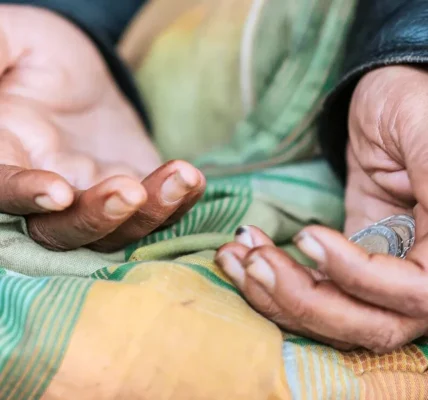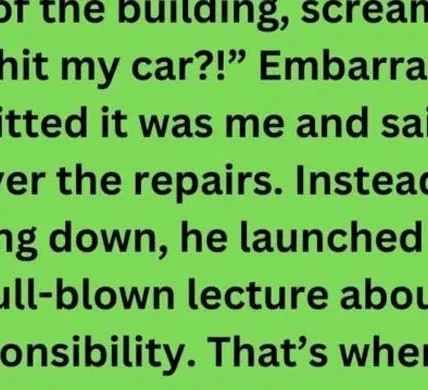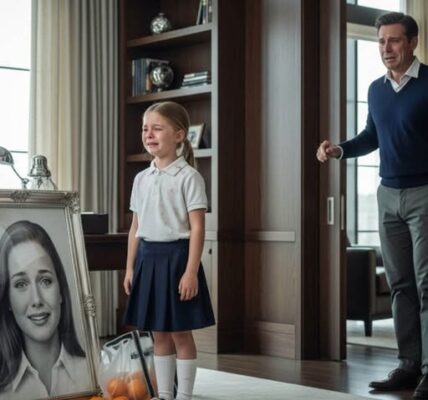The Return
The private jet touched down on Santiago’s runway like a whisper—an elegant ghost cutting through the morning fog. Sebastián Ferrer stepped out, his expression unreadable behind the tinted sunglasses. At forty-five, he was a man who had built empires out of numbers and glass. Once a boy from southern Chile, now an international magnate with offices in Hong Kong, New York, and London.
His life was immaculate—steel, marble, and silence. His success had become his armor, and loneliness the price he paid willingly for it. He hadn’t seen his parents, Manuel and Carmen, in nearly six years. Calls were rare, short, and always ended with his mother saying, “We’re fine, son,” even when he knew it wasn’t true. To ease his guilt, he had done what he did best—throw money at the problem.
He had sent half a million dollars to his cousin Javier, with simple instructions: “Build them the best house in the village. Make sure they have everything they need.” That morning, when a massive deal in Asia fell through, Sebastián suddenly found himself with forty-eight free hours—an anomaly in his perfectly calculated life.
From his office window, he looked out toward the snow-covered Andes and felt something strange—nostalgia, though he mistook it for boredom. He wanted to see the house he’d paid for, to see his parents living in comfort. Without telling anyone, he made an impulsive decision. No chauffeur, no assistant. He took his matte-black Mercedes G-Wagon, entered the address of his hometown into the GPS, and began driving south—toward a past he thought he’d outgrown.
The Storm
The highway soon narrowed into winding roads, then rough gravel paths. The dry Santiago skies darkened to heavy gray, and soon the rain began—a southern storm, fierce and endless.
As the rain pounded against the windshield, memories came flooding back. The sound of water dripping from leaky ceilings, the smell of wet firewood, the constant chill of damp clothes. He had once promised himself he’d never feel that kind of cold again.
He smiled arrogantly. Not anymore, he thought. His parents were probably watching the rain through a double-glazed window in a new, warm home. He was about to see proof of how far he’d come.
But when he reached the village, everything felt smaller, duller, poorer than he remembered. The once colorful wooden houses were now gray and worn, the streets thick with mud. He turned into the old street where he’d grown up—expecting to see a bright new house.
There was no new house.
Only the same fragile wooden home, sagging under years of rain.
And then he saw them.
The Rain and the Truth
His parents were standing outside in the pouring rain. Not under an umbrella, not by choice. They were surrounded by their soaked furniture—a velvet couch darkened by water, cardboard boxes collapsing under the weight of their contents, a television wrapped in a torn plastic bag.
They were being evicted.
Sebastián stopped the car in the middle of the road, frozen in disbelief. His mother, small and fragile, tried to cover the boxes with trembling hands. His father, once strong and proud, stood still, staring at the locked door of their home as two men replaced the lock.
For the first time in decades, Sebastián felt powerless. He stepped out of the car without his coat or umbrella, the rain soaking him instantly.
“Papá! Mamá!” he shouted, his voice breaking through the storm.
They turned—and the look on their faces wasn’t relief. It was shame. His mother covered her face with her hands. His father straightened his back, trying to preserve the last ounce of dignity he had.
“Sebastián,” his father said softly. “You shouldn’t be here, son. It’s not a good time.”
“Not a good time?” Sebastián’s voice rose, trembling with fury. “What’s happening here?” He turned toward the men at the door. “Who are you? What are you doing to my parents’ house?”
One man lifted a document, unfazed. “We’re from the bank, sir. The property was repossessed for unpaid mortgage. Today’s the eviction day.”
“Mortgage?” Sebastián’s voice faltered. “This house was paid off forty years ago!” He turned to his father, desperate. “Papá—what about the money I sent? The half million? The new house? Where’s Javier?”
At the mention of his cousin, Carmen began to cry harder. Manuel lowered his head. “There is no new house, Sebastián. And no money. Javier… he told us to sign some papers, said they were for permits. But the construction never started. Then came letters from the bank. He said it was a mistake… that he’d fix it. We didn’t want to bother you, son. You were so busy…”
The Confrontation
Sebastián felt his chest tighten. His cousin—his own blood—had taken the money meant to care for his parents and used it to mortgage their only home. His arrogance, his absence, had allowed it to happen.
At that very moment, as if fate wanted to mock him, an old car pulled up behind the Mercedes. Out stepped Javier, smiling smugly—until he saw who was standing in the rain.
The color drained from his face. He tried to retreat, but Sebastián was faster. He approached with a terrifying calm.
“You’re going to prison, Javier,” he said quietly, his voice cold as ice. “But that won’t be enough. I’ll make sure you spend every day of your life paying for what you did today.”
He turned to the bank employees. “How much is the debt?”
They told him the amount. For Sebastián, it was nothing. For his parents, it was everything. Without hesitation, he pulled out his phone. “Transfer the full amount to this account,” he told his banker. “And inform the branch manager that I just purchased this debt. The eviction stops now.”
He hung up and looked at the men. “Leave your tools. This property is no longer yours—it’s mine.”
The workers, intimidated by the drenched man radiating authority, backed away. Javier tried to slip away, but Sebastián caught his arm. “You’re not going anywhere until the police arrive.” Another phone call—this time to his lawyer.
The rain fell harder, mixing with the tears he didn’t bother to hide.
The Redemption
When the chaos quieted, only Sebastián and his parents remained in the muddy street, surrounded by their soaked belongings. His mother stared at him, unsure whether to thank or fear him. His father’s lips trembled, speechless.
Sebastián finally whispered, “Forgive me. For not being here. For thinking money could replace me. I failed you.”
His mother ran to him, and he held her tight—the powerful man who once ruled skyscrapers now a broken son clinging to his mother in the rain.
Then he looked around the old neighborhood—the crumbling houses, the people watching silently from their windows—and something changed inside him.
“Tomorrow,” he said, “the demolition begins. But not just of this house.”
His parents looked at him, confused.
“I’m buying this entire street,” he continued, his voice steady. “I’m going to build new homes for every retired couple here. Warm, safe, dignified homes. There’ll be a clinic, a community dining hall… and it’ll be called the Manuel and Carmen Foundation.”
He smiled faintly. “And I’m not sending anyone to oversee it. I’m staying. I’ll run my business from here, from home.”
The New Beginning
Months later, the once-forgotten village was alive again. Where there had been mud and decay, new homes were rising—sustainable, bright, full of life. Workers laughed as they built, and every morning Manuel and Carmen served them coffee, proud hosts of their son’s new legacy.
Sebastián, now in jeans and work boots, directed the project himself. His company had moved its operations south, bringing jobs and hope to a place time had forgotten.
Javier faced justice, and Sebastián found something no amount of wealth had ever given him—peace.
He had finally learned that money could buy houses, but only love and presence could build a true home.


